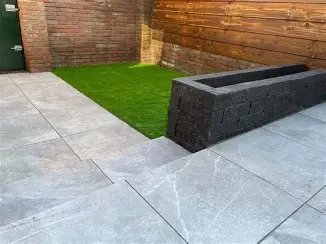Granite is one of the most widely recognized and utilized types of natural stone, especially in the world of countertops and construction. From polished kitchen surfaces to massive building facades, granite has earned a reputation for its durability and elegance. But what exactly is granite—and more importantly, is granite an igneous rock?
In this comprehensive guide, we’ll explore the geological identity of granite, explain its origins, and discuss its properties and practical applications.
Understanding Granite: The Basics
What is Granite?
Granite is a coarse-grained igneous rock composed primarily of quartz, feldspar, and mica. It forms deep within the Earth’s crust from the slow crystallization of magma. This slow cooling process allows large crystals to develop, giving granite its signature speckled appearance.
Granite is one of the most abundant and widely distributed rocks in the continental crust, and its strength and aesthetic appeal make it a prime material for construction and decorative purposes.
Is Granite Igneous?
Yes, granite is classified as an intrusive igneous rock. This means it solidified from molten magma beneath the Earth’s surface. Unlike extrusive igneous rocks like basalt, which cool rapidly above ground, granite cools slowly underground, creating a dense, durable, and visually appealing rock.
For more on the classification of granite, visit what kind of rock is granite? and what rock is granite?.
Granite Composition and Formation
Mineral Makeup
The typical mineral composition of granite includes:
- Quartz: Clear to grey crystals, adds hardness
- Feldspar: Usually white or pink, dominant mineral
- Mica: Biotite (black) or muscovite (silvery), adds sparkle
Geological Formation
Granite forms from the slow crystallization of magma deep within Earth’s crust. This process may take millions of years. The magma must remain in place long enough for large mineral crystals to form—a hallmark of granite’s structure.
Characteristics of Granite
Physical Properties
- Hardness: 6–7 on the Mohs scale
- Color Variability: White, pink, black, grey, green, or blue
- Durability: Resistant to heat, scratches, and staining (with proper sealing)
Natural vs. Engineered Granite
- Natural Granite: Quarried from the earth and cut into slabs
- Engineered Granite: A composite of granite fragments and resins, offering more color uniformity
Common Uses of Granite Stone
Countertops
One of the most popular applications of granite is in kitchen and bathroom countertops. Whether you’re installing white granite countertops, black granite countertops, or a bold granite backsplash, the material adds luxury and functionality to any home.
- For countertop maintenance tips, see: How to Fill Chips and Holes in Granite Countertops? and How to Fix Scratches on Granite Countertops?
Building Material
Granite is often used in bridges, monuments, and building facades due to its strength and weather resistance.
Landscaping and Decorative Uses
Specialized types of granite are used in garden walkways, fountains, benches, and other decorative applications.
Granite Countertop Guide
Benefits of Granite Countertops
- Heat and scratch resistance
- Natural beauty with unique patterns
- Adds real estate value
Maintenance and Care
- Sealing Granite: Helps prevent stains and water penetration
- Polishing Granite Surfaces: Maintains shine
- Cleaning: Use mild cleaners and avoid abrasives
Cost and Availability
- Granite Countertop Cost: Varies by type and thickness
- Affordable Options: Found at wholesale granite suppliers or discount outlets
- Aardwolf Granite Collection: Premium slabs and installation services with competitive pricing
Granite in Design and Comparison
Granite vs Quartz Countertops
- Granite: 100% natural stone
- Quartz: Engineered, more uniform in appearance
- Comparison: Granite is more heat resistant; quartz is less porous
Granite vs Marble: Pros and Cons
- Granite: Durable, less maintenance
- Marble: Softer, elegant but more susceptible to etching
Granite vs Soapstone
- Soapstone: Softer, better at absorbing heat
- Granite: More durable and scratch-resistant
Granite vs Concrete Countertops
- Granite generally outlasts concrete in terms of maintenance and durability
Sourcing and Installation
Where to Buy Granite Countertops
- Local showrooms
- Wholesale granite suppliers
- Online specialty retailers
Explore Aardwolf premium granite slabs and learn about How to Use Ratchet Tie Down Straps for safe granite transport.
Conclusion: Why Granite Is a Geological Marvel
Granite is not only an igneous rock—it’s a cornerstone of both the Earth’s geology and modern architecture. From its deep formation process to its application in modern homes, granite showcases the resilience and beauty of natural stone.
To deepen your understanding of this remarkable stone, explore our Summary About Granite and learn how to maintain and restore its brilliance.

